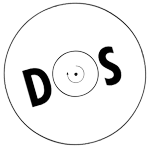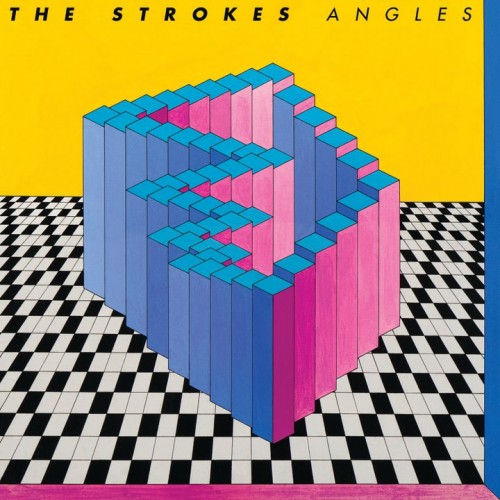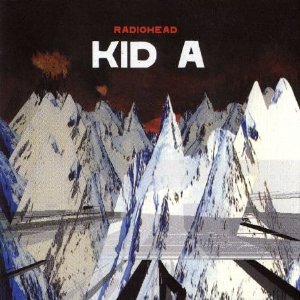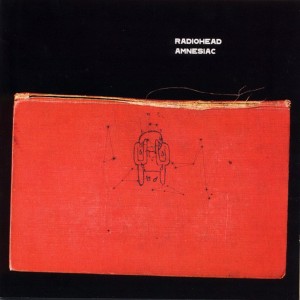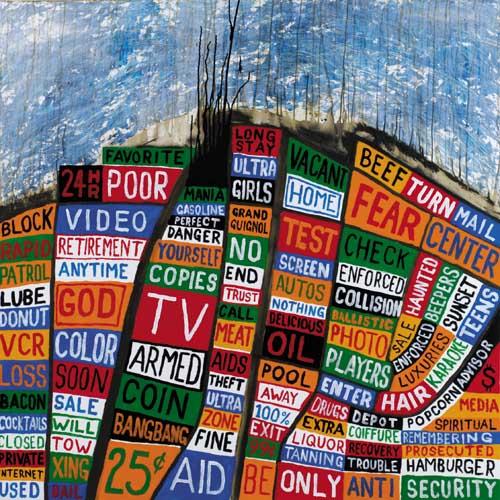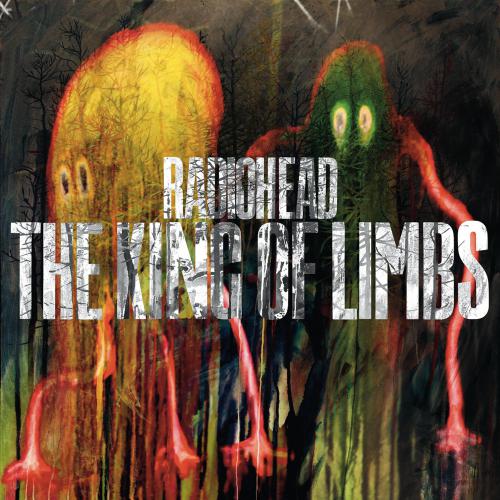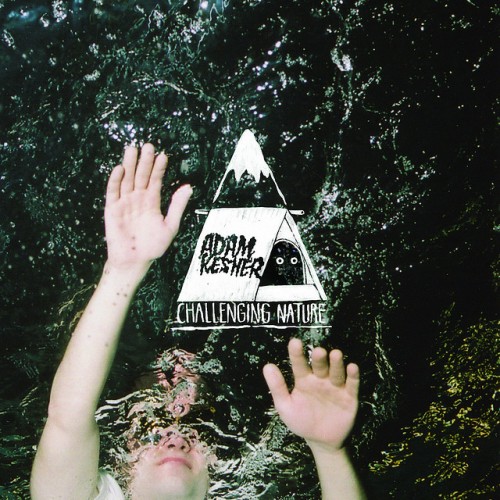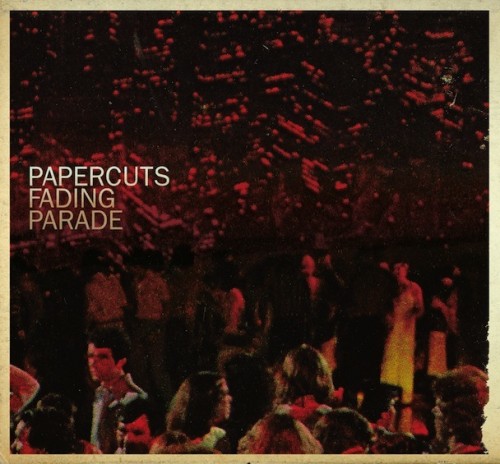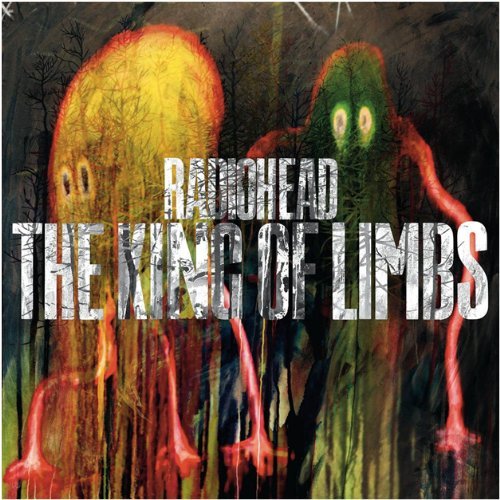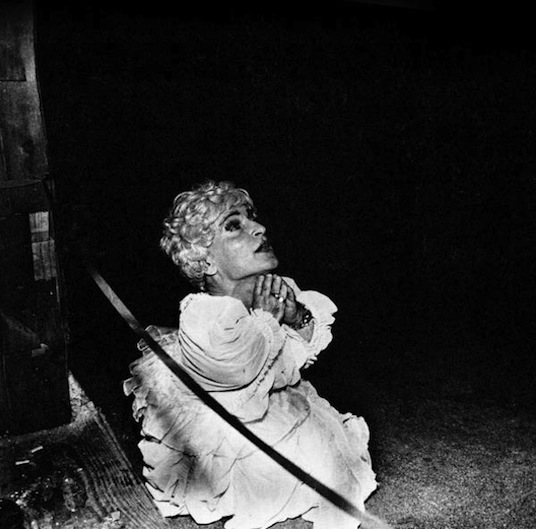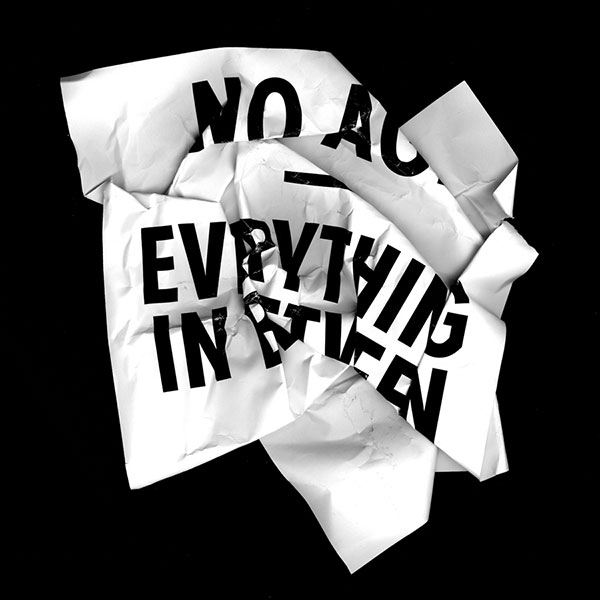MIDDLE BROTHER: MIDDLE BROTHER
[rating:4]
Middle Brother: Middle Brother
Label: Partisan Records
Release date: March 1, 2011
Middle Brother is the new kid on the exploding and frankly over saturated new-Americana block. With three singer songwriters from three burgeoning bands that play with modern folk-rock styles, this is something of a mini-indie-super-group, not unlike their more famous brethren in Monsters of Folk. John McCauley (Deer Tick), Taylor Goldsmith (Dawes), and Matt Vasquez (Delta Spirit) joined forces for an unannounced show at last year’s SXSW festival to showcase their one rehearsal of the album’s songs. A musical baby was born.
Their self titled debut mixes and matches each writer’s distinct style with an alluring spirit of collaboration to weave a warm and intoxicating blanket of hangover blues, wicked self-loathing, and ramshackle celebration. No voice dominates as each songwriter recognizes the greater good lies within the song. Lyrically, the boys are weary and broken hearted but find a resolute wish inside their mourning. By blending the tragic and the hopeful, Middle Brother paints with heartfelt brushstrokes as all three songwriters pick up the pieces of their shattered selves filled with mistakes, lust and shame. Music may be the only reason to carry on.
Vasquez, perhaps the least heralded member is a revelation for those unfamiliar with Delta Spirit’s work. “Blue Eyes” sparkles with crystalline melodies that feel more robust upon each listen. He sings the ode to a crush with lush emotion, “She’s a southern girl without the drawl/She’s a good girl who wears black bras/The only one who can make me crawl/She’s too sweet to force me”. Slinky yet direct electric guitar work and vivid piano accents allow the song to bounce forward, building beauty. “Theater” is perhaps the most angrily elegant song on the album with a desolate refrain that rings out, “This life won’t tell you nothing/nothing but lies”. Vasquez’s “Someday” is another nugget of perfection, mixing doo-wop and R&B-ish harmonies to form a weirdly creative synthesis of modern country folk and Brill Building aesthetics that somehow makes perfect sense.
McCauley brings his very personal, raucous and gritty rock n’ roll sensibility to “Me, Me, Me” and “Middle Brother”. The former is supported by big three part harmonies from his two compadres and the latter is a hefty dose of McCauley’s self-loathing tied to a boisterous mash up of Jerry Lee Lewis vibes and “All Shook Up” melodies. In McCauley’s best work his combination of self-depreciating humor, lucid acknowledgement of personal pain, and an anguished singing voice make him a somewhat tragic figure, supremely talented yet self destructive.
Goldsmith’s brand of sincere story telling showcased so prominently on Dawes’ fabulous debut North Hills, is displayed in its most stylistically simple format on “Thanks for Nothing” where a sparse arrangement deftly allows his words and heart to shine. “Wilderness” echoes the sense of despair that turns up frequently on Middle Brother, albeit couched in the prettiest of melodies. “I plan to be the guy who when he drinks/he disappoints/They say you’ll kill yourself before you know it/Well, isn’t that the point”. Unfortunately, “Blood and Guts” is the first and only Goldsmith creation that feels slightly overblown by the middle.
A cover of Paul Westerberg’s “Portland” is a perfect choice. The former Replacements front man wrote this track after a particularly rough night in the Northwest during the 80s when he and his band mates were unable to complete a performance due to an excess of grandpa’s cough medicine. Because Middle Brother echoes the Replacement’s dirty beauty, the instantly hook filled guitar line fits in perfectly. Westerberg’s words tell the story, “Regrets, misgivings, but we won’t change/Its too late to turn back/here we go”.
On the album closing “Million Dollar Bill” the musical brothers collaborate on a breakup lullaby with crisp snare hits and alternate singing the verses. A pure spirit of teamwork and support lifts the songs “oohs” toward a real place of heartbreak, friendship, and the hope of a better future. Middle Brother keeps the flame alive.
THE STROKES: ANGLES
[rating:4.0]
The Strokes: Angles
Label: Rough Trade
Release Date: March 22, 2011
The Strokes officially release their fourth studio album, Angles tomorrow on Rough Trade. After such a long hiatus and hyped as the first Strokes album with creative input from all five members, we were not quite sure what to expect from this album. But despite this albums diverse collaborative input and attempt to rebuild the band from the ground up, this is definitely still a “Strokes album”. If you are expecting an ambitious statement from the band that will push the musical landscape in a new direction, you will no doubt be disappointed with this album. What you can expect is a collection of new songs from a continually evolving band, with a new sound that is refreshing but also familiar, maintaining their signature sound; catchy hooks, punchy guitars , Juliens droning monotone croon, subtle hints at reggae and 80’s rock. After heavy rotation, this album proves itself a highly redeemable work, one of the bands most interesting, if uneven EP’s that is better and better with each listen. Like 2001’s overly hyped/ mis-represented Is This It, Angles is just straightforward catchy pop rock, meant to be enjoyed as just that. Pitchfork might want these guys to “quit while they’re ahead”, but if anything, Angles proves the Strokes are a band forging forward, and we are glad they keep on, keeping on.
Read a more in depth album review from Discosalt contributing writer Andrew Bailey below:
Angles frequently sounds more like an album heavily influenced by The Strokes than actually by The Strokes. There seems to be a lot less attention to detail in the songwriting, the track-for-track reliance on big garage rock guitar riffs isn’t so aggressive, and the 1980′s have clearly left a very palpable impression. Even some alien reggae influences have seeped in on “Machu Picchu”, easily one of the record’s best tracks. Above all else though, what really stands out here is the quality of production (at last). The rugged garage aesthetic made sense on Is This It and even to some extent on Room on Fire. But by the time the band reached First Impressions — where they finally started trying to merge the old with the new — it started feeling overly manufactured. The Strokes are, after all, a big time rock group now. And they aren’t in their early-20′s anymore, either. Clinging to the same old lackluster production quality might have coddled a few old fans still starstruck by the sound they broke in with, but it wouldn’t have done anything for the band’s progression. All these changes might be big splashes of cold water to the face, but they’re all incredibly welcome ones. (Read More HERE)
Stream the entire album on the Strokes website right HERE.
KURT VILE: SMOKE RING FOR MY HALO
[rating: 4.5 stars]
Kurt Vile: Smoke Ring For My Halo
Label: Matador Records
Release date: March 8, 2011
Kurt Vile knows exactly what he’s trying to say, but would like us to think otherwise.
On his fourth record, Smoke Ring For My Halo, Vile’s self-doubting loner conversations with himself unfold like a diary rambling entry, and whether or not we are privy to listen, is part of the allure. Mumbling lines like “Think I’ll never leave my couch again, because when I’m out, I’m away in my mind. Christ was born, I was there. You know me, I’m around. I got friends, hey wait, where was I, well, I am trying.” – Vile, subconsciously, as much as he tries to convince the listener he’s lost, always knows where he is.
The songs on Smoke Ring For My Halo, represent a bit of a departure for the Philly based singer/ songwriter whose stoner persona has characteristically given his songs a half-finished demo feel, not only conceptually incomplete but produced on a budget. All this has changed, and Vile’s songs, while maintaining the simplicity of previous albums (maybe even more so) are more complete, fully realized arrangements of strange beauty with subtle nuances that consummate just how much Vile really cares, about both the songs and the subject matter. His “whatever” attitude only rears its head in “Runner Ups”, asking everyone to “take a whiz on the world…Sometimes I get stuck in a rut, too It’s ok, girlfriend” but deep down, Vile is just mimicking a protagonist removed from the world; a character he has so often played.
Sonically, Smoke Ring channels the energies of the seventies, notably the Rolling Stones, Neil Young, Tom Petty and John Fahey, both paying homage to the albums influences and imbibing the genre with some new found energy and wry lyrical observations. With Dylan-esque guitar jangles, classic rock keys, harp and slide, Vile ambles along effortlessly, sneering and yearning with plenty of whimsy hidden beneath the gloom on tracks like “Puppet to the Man” and the oddly upbeat “Jesus Fever.” “In My Time” is a hypnotic indie pop gem, while “Ghost Town” is a prolific ode to latent depression, a long winded, mumbling philosophy lesson from a slacker who desperately doesn’t care. “Raindrops might fall on my head sometimes / I don’t pay ’em any mind.” But by the end of this album, we, like Vile, know better.
RADIOHEAD NOW: ECHOES OF THE PAST, GLIMPSES OF THE FUTURE
“Radiohead makes music that sounds like the future.”
I paraphrase, but this is, essentially, what every other review of Kid A, the album that marked a stylistic shift from UK alt arena rock – inspired and informed by IDM, left-field pop, kraut rock and avant-garde – to something much grander, that mirrored more than masked those influences. Labeled and branded everything from electronic pop, avant-pop, and alt-prog, the Radiohead that made Kid A, Amnesiac, and Hail to the Thief scarcely resembled the Pablo Honey – OK Computer band from Oxford, England. Unlike many of their contemporaries, Radiohead consistently raised the stakes of the game with each new release while simultaneously changing it completely.
Everyone knows countless bands that based their sound on The Bends, or made an entire career out of writing lesser “Karma Police” knock-offs. So, when Radiohead detoured off course, some who were listening stopped and some who hadn’t, stopped and listened. It’s no secret that there is an entire generation of kids who knew the Kid A/Amnesiac Radiohead better than the previous album but these albums and that incarnation of the band are unmistakable influences for today’s most interesting artists – many from the indie world.
Electronica, in its every variation, has been in and out of style since the seventies and, yet there are still many music fans and freaks who don’t acknowledge it, don’t get it, or just don’t like it. For those who were born into the dance/electronic scene – like the hardcore kids of the Reagan era – there was a strict expectation to only be into that kind of music (at least, publicly). Kid A and Amnesiac became the OK exception to that rule though, because it sounded closer to Autechre and Aphex Twin than say, Travis or Coldplay.
While other respected rock acts noodled with knobs and flipped on the digital blips with mixed results, Radiohead succeeded by scrapping it all and starting from scratch.This sacrifice and surrender has taken the band in a completely different direction than “The Biggest Band in the World” is expected to go. All of a sudden, the fringe became familiar, the champions became challengers, and an entirely new approach, of taking the discordant and experimental and turning it into something tuneful and accessible, was born.
By the very nature of experimentation, this led the band and all musicdom to where it is now. Wilco, Arcade Fire, Animal Collective, Yeasayer, etc. And now we have The King of Limbs. Though it surprised us in its date and time of release, the material really hasn’t. It’s an amazing piece as a cohesive album and there are standout tracks, but it doesn’t feel like much has changed. Thom continues to become more comfortable exploring his entire range and register as a vocalist, The Greenwoods continue to perfect their unique, complex and melodic arrangements and explore guitar as texture, and Ed O’ Brien and Phil Selway marry precise, hypnotic, off-kilter and oddly timed rhythmic patterns. In other words, Radiohead continue to be Radiohead. They continue to produce semi-challenging/kinda-experimental music for a mostly mainstream audience. (Yes, indie is a sub of mainstream).
They’ve commercialized the avant-garde. They’ve sold us jazz by convincing us it’s rock. This is a great accomplishment. Though The King of Limbs is no departure from near recent efforts, it is still a Radiohead album and it’s better than most anything from 2010 to current. It’s another triumph, filled with jittery sexiness and sexy jitteriness.
Musicianship and artistry aside, the marketing of Radiohead is exciting in and of itself. We’ve seen Kid A’s less-than-friendly “press interaction by email only” attempt to break the slack journalism cycle and we witnessed the band succeed in breaking the fourth wall of the music business with In Rainbows’ self-distributed, pay what you like industry-shaking power move. So, where do you go from there?
If you’re Radiohead, this time out, you surprise, delight and befuddle. First off, with little warning, they announced The King of Limbs release date, then released it even earlier, catching almost everyone and all of twitter off guard. At the same time, they released the black and white “Lotus Flower” video of a happy-looking Yorke busting liquid-like moves in a bowler, then watched it go viral and achieve meme status (See Yorke Vs. Bieber). Next, to commemorate the physical release of TKOL, they handed out a newspaper (The Universal Sigh) featuring essays, poems and Stanley Donwood artwork. With these efforts, the band and their camp have proven that they know what they’re doing – and love that the rest of the world still doesn’t.
Still, many have called the release a sleeper or grower – which is a fair enough assessments for cliquey hipsters and jaded critics – but like all things wonderful and strange, there are many levels of The King of Limbs to love. With the Record Store Day tracks “Supercollider” and “The Butcher,” as well as the most recent Limbs session release (and Glastonbury favorite), “Staircase,” adding even more complex allure and simple joy to the equation, fans and foes alike are getting another vital piece of the puzzle completing an already enthralling album from the only band making music that genuinely sounds like the future.
-Casey Bowers
ADAM KESHER: CHALLENGING NATURE
[rating:3.5]
Adam Kesher: Challenging Nature
Label: Disque Primeur
Release date: April 11, 2011
–Andrew J. Bailey
STARFUCKER: REPTILIANS
[rating:2]
Starfucker: Reptilians
Label: Polyvinyl Records
Release date: March 8, 2011
Joshua Hodges started Starfucker as a solo act in Portland, Oregon four years ago. He gained citywide acclaim for danceable electro pop that ruled the house party circuit and left all the tight jeans and ironic Def Leppard shirts ripe with sweat. Soon the band expanded in numbers and a self-titled LP was released in 2008 but failed to gain the band a much wider audience. Their live show continued to earn higher marks than studio work. At some point in 2009the band changed their name to PYRAMID and then apparently to Pyramiddd.Soon thereafter, they pulled a switcheroo and returned to their original name. However, they now tour as STRFKR. Got all that?
As one of Portland’s belovedindie productsthe band releases their second LP,Reptilians, on SF imprint Polyvinyl.In the band’s early days, Hodges was hailed for his combination of hummable pop song structures and quirky electronica, a blend now ubiquitous across the world. On Reptilians, the band faces the sophomore challenge of trying to figure out where the first album missed and establish themselves as an emerging force to be reckoned with.Unfortunately, there isn’t enough about the album to make a strong impression. The problems are two fold. Most egregiously, the band cranks their snappy synth leads so high in the mix they clobber instead of inspire, seemingly dying to be recognized as the next“Time to Pretend”. Second, the vocals are far too hushed, plaintive and washed out, showing little urgency or emotion. Breathy and ethereal is one thing but thesevocals lack passion andmake Hodges sound as if he is drowning in a pool of opaque water. The songs are on the whole, unmemorably ho-hum.
In the middle third of the album Starfucker finds their zone for a few songs. “Astoria” is mixed more effectively, vocals are audible, acoustic guitar loops converse with the click-clack of e-drums and vibrant synth lines dip and dive without smothering the song completely. “Reptilians” is a weird little nugget of electro-psych-pop that shows off solid songwriting skills with sweetly warped guitar and a synth sound that seeps inside one of the album’s thicker grooves. The band shows off a bit more creative patience here, vibeing with delicate structural changes inside three minutes and instantaneously turn the song into mournful electro candy. “The White of Noon” is the album’s strongest track. A stoned groove lays back before exploding in a processed sunburst of spacious guitar melodies. It is in this moment the band shows off greater purpose and energy. Unfortunately, this moment doesn’t come until half an hour in and it’s not clear why listeners would hang around that long when so many bands compete for a similar sound. It is simply hard to see this collection standing apart from the pack.
PAPERCUTS: FADING PARADE
[rating: 2]
Papercuts: Fading Parade
Label: Sub Pop
Release date: March 1, 2011
Jason Robert Quever has never been even remotely rapacious to begin with, but on his newest release as Papercuts he’s gone from simply being moderately bashful to almost completely disconnected. This isn’t to say that Fading Parade isn’t a feathery, pleasant LP. Its just that so much feels ambiguous or straight-laced and rarely, if ever, does it manage to completely hit its marks, causing it to leave behind very little in the way of lasting impressions.
“Do You Really Wanna Know” and “Do What You Will” aren’t only the first two songs on the tracklist, they’re the album’s most apparent outliers. Of course, many of the songs here do tend to follow the same general guidelines, so its reasonable to assume that no matter which two cuts had been bumped to the front of the line they might have felt like the album’s most noteworthy moments; barring something truly extraordinary, first and last impressions are what tend to resonate with our collective memories. At any rate, those two tracks — not coincidentally among the album’s shortest — are representative of Quever’s most direct and vibrant moments against a backdrop of stuff that shoots to be simultaneously dreamy, folky, and emotionally riveting but rarely has the urgency or variety to achieve any of the above.
Of the 10 songs here, “I’ll See You Later, I Guess” might be the best example of where Quever’s efforts fall short. The song actually features some decent core components: the identifiable lovelorn indifference, the occasionally pretty arrangement. But the track is far more spacious than it needs to be, dragging fruitlessly in the middle, wavering around in search of a climax that never comes. It seems like a seed stretched beyond its means rather than a fully formed song and as an unfortunate consequence leaves behind little in the way of memorability (yes, thats a recurring theme). Its affable and all, but Quever’s timidness is a real anchor of progress.
The mixing on the album is also a significant stumbling block. Quever places a large emphasis on guitar here, but rarely is the production crisp enough to really bring out the strumming. The reason for this is fairly simple: there’s actually a bunch of instrumentation, but its all been pushed way back in the mix. So what ends up happening is the intended focal point — the guitar — gets overwhelmed by many of these peripheral, mostly nondescript sounds. Sometimes it’s lazy percussion coming from off in the distance, or the smattering of a tambourine, or even Quever’s vocals just swooning around, gently bouncing off the walls of the studio but never fully coming into focus. It all feels strangled and muddled, each instrument content to exist rather than live, and so each of them merely plod along together. Whatever pretty guitar work is being plied just falls by the wayside. Its especially frustrating because it really does seem as though Quever has something to get off his chest here.
It isn’t essential that Quever be the kind of frontman demanding of a spotlight, standing on the edge of a stage throwing his arms in the air and dripping flop sweat on his adorning front row fans. Actually, with that visual in mind, its probably a good thing he isn’t that guy. But Fading Parade could have certainly used some more punch from its leading man and driving creative force. Without it, this collection of songs merely come and go.
RADIOHEAD: THE KING OF LIMBS
[rating:4]
Radiohead: The King of Limbs
Label: TBD Records
Release date:February 18, 2011
Radiohead’s many achievements are so rich that the group is no longer in a class among peers. They haven’t been for quite a while, really. In much the same way The Beatles discography is compared to itself rather than to albums from other artists of the same era, we draw lines from OK Computer toAmnesiac and Kid A to In Rainbows because these are the only comparisons that make even the slightest sense. Sure, Radiohead borrows concepts from other artists — this is what allows them to take on a new identity with each release — but the music they make is, even objectively, unlike anything else being done. It just is.
Even the band’s peripheral business is unmatched. In 2007, the lads famously utilized a short notice, pay-what-you-want method to release In Rainbows. While giving away music for free (if that’s what you chose to “pay”) wasn’t such an unheard of practice, it certainly was coming from the biggest band in the world yielding a highly anticipated record. But it worked. And so one week ago, the band went down a similar path: they announced via their official website that a new album, The King of Limbs, was not only finished but would be available for digital download (for nine bucks this time) in just five days. Of course, later in the week they audibled and the record was downloadable 24 hours early. For the second time in as many records, the band had rather remarkably dodged the advance leaks that plague so many — practically all — of music’s heaviest hitters. It also set the stage for fans from all over the world to share in a frantic collective listening experience full of swooning, knee-jerk analysis, and even optimistic code cracking.
For many listeners, those first spins were justifiably surprising. Aside from the somewhat confounding fact that The King of Limbs spans only 37-and-a-half minutes across eight songs — Pablo Honey was previously the band’s shortest album at 42 minutes in length (but it had 12 tracks) — the music, which matters above all else, proved something of a perplexity even for a group known for turning any previous sound they’d established onto its head. Even after many, many more listens, there’s still a baffling quality to it all. Beginning with “Bloom”, which is fueled by an uncharacteristically repetitive percussion-heavy beat that reminds of Flying Lotus, this is a record that feels startlingly minimal. In terms of immensity and texture, it sounds a lot closer to Thom Yorke’s solo effort, The Eraser, than it does a full-fledged Radiohead outing. “Separator” (formerly “Mouse Bird Dog”), for instance, sounds like it could have just as easily come from the same sessions where Thom recorded his extraordinary cover of Miracle Legion’s“All For the Best”.
The album is heavily indebted to electronics, but the way in which everything is arranged, produced, and mastered gives it a pleasant organic feel. When you listen to “Idioteque” you can actually hear the carnage of a busy dance floor: sweaty bodies bouncing off one another like bumper cars, the erratic flash of strobes. Aside from the fantastic pairing of “Codex” and “Give Up the Ghost” (both softer cuts), every song here is thick with electronics, but rarely does it feel like music you’d hear in a club. Instead, it sounds like something you’d play loudly through headphones while inebriated somewhere in the middle of the woods. Its disjointed, visceral, and extremely environmental. Purported to have been inspired by a 1,000-year-old oak tree in an English forest, The King of Limbs sounds appropriately like nature, twisted up and skewered through drums, synthesizers, sequencers, and miscellaneous electronic smoke and mirrors.
That the band has taken on electronic music in such a head-first manner isn’t a surprise. It is, however, a shock that they’ve left so many of their trademarks on the cutting room floor. The exquisite guitar work of Jonny Greenwood and Ed O’Brien seems heavily restrained, if not snuffed out altogether. The smooth strums and accompanying palm slaps against the face of the instrument on “Give Up the Ghost” make for a beautiful composition, but Thom could have pulled this off on his own. While it isn’t uncommon for Thom to take center stage and the band to serve a lighter, more complimentary role, on The King of Limbs that practice is the standard rather than the exception. The sheer lack of the band’s usual scale makes it difficult to digest, as if at any given moment there’s something absent.
The King of Limbs is also unapologetically devoid of the band’s signature pins and needles emotion. The build-up-and-break-down moments are nowhere to be found and the range of sentiments is noticeably compact. It often moves in a linear direction as if the whole thing is one giant stream — surprising given that it wasn’t too long ago that these guys seemed frustrated and bored by the generic album format, which breeds the type of even-keel cohesion on display here. The beat and rhythm of “Bloom” meld directly into “Morning Mr. Magpie” as if the tracks or feelings hardly changed at all. “Feral” plays like an extended introduction to “Lotus Flower”, one of the few moments where it sounds like all five members showed up at the studio. Without the hysterical meltdowns and assortment of affecting moods that are usually brimming from a Radiohead album, its just an emotionally meager presentation.
After 1993′s average-ish Pablo Honey, Radiohead reeled off six diverse, revolutionary records in a row. In each case, the results were about as life-altering as music can get. In the case of OK Computer and Kid A, at least, the entire music industry was sent reeling. The King of Limbs lacks that mystique and, for the first time in almost two decades, has dented the five-piece’s astonishing invincibility. Still, in the grand scheme of things, this is a triumph of its own variety. That it can be so puzzling, so removed from their legendary arsenal and yet remain engaging and enjoyable is an unparalleled testament. Truly, Radiohead has a Midas touch all their own — even when they miss, they somehow manage to excel.
The King of Limbs isn’t exactly the grand unveiling of a new sound, but rather a deeper exploration of a place that the band has already gone, this time toned down and smoothed up around the edges. It could grow to be terrific by almost any standard, but up against the astronomically high bar that Radiohead have set for themselves — masterpiece after masterpiece after masterpiece — its difficult not to feel somewhat let down.
-Andrew bailey(Binge Listening)
YUCK: YUCK
[rating:4.0]
Yuck: Yuck
Label: Fat Possum
Release date: February 15, 2011
Yuck is a predominantly four-piece (sometimes five-piece) outfit made up of members from London, Hiroshima, and New Jersey. On their self-titled Fat Possum debut, the band proudly wears those worldly influences on their sleeves, meshing together a surplus of genetics from other notable artists into one versatile, low-fi production.
Both Yuck the band and Yuck the album could be loosely fit into a number of different genres. There’s indie rock, obviously, but there’s also elements of shoegaze, noise pop, punk, and dream pop all run through the same garage rock aesthetic. All things considered, its not the most original sound that’s ever been broached. In fact, more often than not these songs are derivative of other songs from other prominent bands, beginning with Dinosaur Jr., Yo La Tengo, and Sonic Youth and then extending to Pavement, shoegaze mainstays My Bloody Valentine, and even The Folk Implosion. An entire mile-long scroll could be dedicated to listing all the bands that have a fingerprint on here. So yeah, its a familiar sound. But its a sound that’s tried and true and that they do an impressive job of tackling.
Aside from how recognizable this album is even on a first listen, the thing that immediately jumps out about it is the variation. Perhaps its just a narrow perception, but it seems that as more and more bands influenced by garage rock and indebted to the increasingly popular low-fi production crop up, the differences from track to track grow slimmer. This isn’t the case at all for Yuck. Highlighted by the fantastic, grinding closer “Rubber”, Yuck hardly spends the entirety of the album rocking our ears off, even though the first few notes of the initial track, “Get Away”, suggest that’s what’s to come. Standouts “Holing Out”, “Georgia”, and “Suck” are all infused with thick layers of bass and guitar, but throughout the album these heavier peaks are complemented by valleys of surprisingly comforting harmonies and softer, more wavy instrumentation. “Shook Down” is one such example. Even if they’re borrowing from a recognizable sound, each song manages to distinguish itself in some way so as to prevent it from feeling like 12 iterations of the same old song.
Yuck isn’t going to garner a lot of points for overall creativity, though it certainly begs mentioning that following in the footsteps of other artists doesn’t simply mean playing prearranged songs out of chord books. They should, however, be credited for their execution. Over the course of 12 excellent songs, they’ve done justice to the likenesses of some of the best bands across multiple genres, while simultaneously separating themselves from their more recent contemporaries.
BRIGHT EYES: THE PEOPLE’S KEY
[rating: 3]
Bright Eyes: The People’s Key
Label: Saddle Creek
Release date: February 15, 2011
The People’s Key is expected to be the final chapter for Conor Oberst, Mike Mogis, and Nate Walcott’s Bright Eyes, a legendary outfit with a revolving cast of characters that has spawned no less than four classic albums. This curtain call is also quite possibly the most ambitious yet, picking up right around where 2005′s Digital Ash in a Digital Urn left off. This isn’t the Bright Eyes we’ve heard evolve over the past decade plus, but it is a fitting punctuation mark.
One of the reasons that this is expected to be the last Bright Eyes production is that Oberst’s tastes and ambitions have shifted noticably over the years. Obviously, changes with age are also a factor (he was a teenage prodigy when this all began, after all). Cassadaga, the band’s previous album, was arbuably their most country-influenced yet, but Oberst has stated in the lead up to The People’s Key that he’s become“really burnt out on that rootsy Americana shit”. So basically, rather than clinging forever to a name that comes with preconceived expectations, Oberst will be able to move forward and explore different things without that cloud hanging over him (of course, as we all know, musicians do have a way of changing their minds). But not before exhausting the last of the obvious Bright Eyes avenues.
Unless Oberst and bandmates were planning to release a Spanish techno album — and they probably weren’t — The People’s Key is about as far as the Bright Eyes umbrella could have been stretched without becoming something altogether alien. That isn’t to suggest that 10 songs on this LP are unrecognizable, because they aren’t. Some of the formulas the band has subscribed to for years are still firmly in place. At the same time, this is easily the most electronic, drum heavy, rock ‘n roll inspired album the band has ever put out.
The album starts horribly, to be blunt. In front of wavy synths that serve as the lead-up to the actual song, “Firewall” features the first appearance of some weirdo buddy of Oberst’s, who makes several appearances on this album, but none worse than the one right at the top. He rants mostly incoherently about Adolf Hitler, lizard-creatures, the Garden of Eden, and alternate universes orbiting counter-clockwise. Its pretentious, probably intended to be a little bit ironic, but most of all its the first appearance of a frustrating trend. Unfortunately, it also feels necessary, because these are all topics Oberst addresses — even if briefly or vaguely — throughout the course of the album. From someone who puts such an emphasis on narrative and literate songwriting, it shouldn’t be a surprise to hear Oberst reference Jesus, Buddha, and the Führer (and Hitler directly). But we expect to hear this stuff from him. It would have been nice not to have to hear it from some rambling froot-loop as well.
That big complaint aside, the musical composition of the album — albeit different — is actually pretty good. The percentage of “Firewall” that doesn’t involve these senseless ramblings borders on fantastic, “Shell Games” is one of the better radio-natured songs Oberst has ever written, and “A Machine Spiritual (In the People’s Key)” is another standout that really begs repeated listens. The album’s closer, “One for You, One for Me”, is every bit as terrific a song as there is here and, in a strange kind of way, sparks subtle reminders of LCD Soundsystem‘s “All My Friends”. (Admittedly that’s a bit of a left field, abstract parallel to draw.)
Percussion is the thing that makes this such a new direction for Bright Eyes though. Drums have always held a place in their songwriting arsenal, but on this record they’ve been pushed to the very front and paired up with more synthesizer than ever before. Hell, “Triple Spiral” illustrates it all in one four minute chunk. Its a weird chameleon-like shift to undergo in four years or so, but if Cassadaga was the outfit’s most outwardly Americana album, then this is as close to the opposite of that they’ve ever gone before. Its a curveball to be sure, but again, it really isn’t leaving the band’s boundaries so much as nuzzling right up close to the edges.
This isn’t the greatest thing Bright Eyes has ever done and if it does turn out that this is their farewell then it might not be the most neatly tied ribbon they could have put on their legacy either. Or maybe, just maybe, we’ll look back down the road and see the positivity this album yields and be able to appropriately compare it to those gut-wrenchingly emotional days of Lifted or The Story Is in the Soil, Keep Your Ear to the Ground and realize, yeah, Bright Eyes covered all the ground they could and did so wonderfully.
-Andrew Bailey (Binge Listening)
SHARON VAN ETTON: EPIC
[rating: 4]
Sharon Van Etton: Epic
Label: Ba Da Bing
Release date: September 21, 2010
The opening track of Sharon Van Etton’s sophomore album Epic sets the tone of the album by being quite literally, epic. As she pushes through the song, the listener realizes that she is her own hero, protecting herself from the naked emotions of a broken heart. With each breath, she is both asking and telling herself “never love like that again.” Her lyrics, while generally uncomplicated, have a subtle power to both ask and tell, and to be firmly resolute. The record poses a series of introspective questions that are directed at herself, not the listener. The record isn’t telling a story, but instead, expressing the feelings that humans have that make us insecure. Her bare and direct confrontation of these feelings is unsettling and beautiful.
Her lyrics and smoker’s voice are the driving force behind the album. There are definite influences of country music from her years in Tennessee, especially on “One Day” and “Save Yourself” but they don’t define her sound. Her voice has a strong character to it that shines over country guitar or the synth pop sounds of “DsharpG” and “Love More”. “Don’t Do It” is strongly reminiscent of The Cranberries, both vocally/lyrically and instrumentally. Although the album is a relatively short seven tracks, there are a lot of different musical styles and influences. While it does feel a bit disjointed, her strong lyrics and emotional delivery seem to bind the album together.
There is no way to decide if a singer with a simple backing is going to be uneventful. Sometimes you’ll get a beautifully spare record like Bon Iver’s For Emma, Forever Ago. Other times you’ll hear a completely forgettable album, that was good, but nothing special. On that spectrum, I think Epic is far into the Bon Iver region. I find myself humming parts of it, and dialing my iPod to it more than I expected for a female folk singer. There’s something raw, open, and honest about Epic that makes it noteworthy and memorable.
-Rachel Covert
SUMMER FICTION: SUMMER FICTION
[rating: 4]
Summer Fiction: Summer Fiction
Label: Unsigned
Release date: December 3, 2010
Somewhere between The Shins, Belle and Sebastian and The Zombies, Philly’s Summer Fiction (singer-songwriter, Bill Ricchini) reside and play your local Garden Party with sleepy nostalgia and (what else?) Summer flare.
Channeling those timeless 60’s pop melodies and transforming them into something just as familiar but no less exciting, Summer Fiction is a gorgeous and promising debut. Ricchini’s genteel vocals pair well with his chamber pop production and though there is no evidence of straight beachgaze allegiance, Summer Fiction could find a friend (and fans) in a band like Real Estate.
One cop-out that isn’t is that this music almost sounds like it could have been made personally for grown-up versions of Wes Anderson characters from Rushmore. All the main offenders are here: 70’s am gold, Chicago-style soft rock, and imagery of affluence. It’s never decadent or dark. Easton-Ellis has no place here. In fact, it’s almost always innocent sounding. This is easy listening, indie style with boat shoes. So, yeah, there’s some trendy/tired bi-coaster nautical themes as evident in By the Sea, Diamond Beach, and Kids In Catalina (“Dig your feet into the sand/ Wade the ocean, take my hand”) but you instantly forgive when you you really listen up and just let go. The instrumental tracks serve this purpose near-perfectly, creating a soft and playful interlude and by carrying the drama on its way.
What you’ll find on Summer Fiction, Summer Fiction:
- Coastal charmers, wordless waltzes, and even-toed ballads and bedroom duets with splashes of muted chroma and candle-lit lullabies.Echoes of Burt Bacharach, Tijuana Brass, xylophone solos, chiming, ringing guitar notes, even keeled drums, toe tappers and sway-to serenades.
- The dude at your work with the Mogwai t might not dig it as much as you, the Fleet Foxes devotee but then again, he might and you might not. For clearing off your iTunes gift card or for $8 on bandcamp, it’s well worth finding out. Sail on, float on, drift by, and dive i – wait, no diving!
-Casey Bowers
DEERHUNTER: HALCYON DIGEST
[rating:4]
Deerhunter: Halcyon Digest
Label: 4ad Records
Release Date: September 28, 2010
It’s rather difficult to keep track of all the indie bands with “Deer” in their name these days. Deerhunter is a venison-inflected troupe that has managed to escape me over the years. Walking into Halcyon Digest, their much-lauded new album, I carried a tabula rasa of impressions never having heard a note of music from the Atlanta, GA four piece. Renowned for their mix of indie pop, post punk and shoegaze, Deerhunter has released two EPs, two LPs and even gone on hiatus in their decade long career. Halcyon Digest is their jump back into the fray.
Out of the gate “Earthquake” mixes a pretty yet thin acoustic guitar sound with an indie rocker’s idea of dub-influenced percussion. Ambient support by ethereal vocals immediately deepens the song’s texture, a theme running strongly throughout the album. While many of the song structures initially come off as relatively standard indie pop/rock fare, digging aurally deeper yields enchanting results. “Don’t Cry,” offers a crunchy fuzz-tone guitar sound and the first of many moments that easefully pay homage to 1950s girl groups. As the band coos, “Come on little boy/I am your friend/And I understand the pain your in…/Oh boy/You don’t need to cry/You don’t need to cry your eyes out/You don’t need to understand the reasons why-o-why-o-why-o “ they deftly mix the hipster angst of the twenty first century with the accessibly sweet arrangements of The Marvelettes’ tender ballads. Electronic effects cloaking the vocals add further depth to this creatively eerie juxtaposition. “Basement Scene” is perhaps the album’s most resonant example of this girl group vs. shoegaze sound. ‘”Dream, a little dream all about the basement scene/I don’t want to wake up/I don’t want to wake up/I don’t wanna wake up, no” the band sings amidst a haze of electro-acoustic air.
First single “Revival” carries this pattern of fully fleshed out structure further. There is a simple vs. dense dichotomy occurring, where the supporting instrumentation expands outward but remains warmly tucked inside a pop framework. “Memory Boy” fantastically recalls the late 60s psych-garage pop of The Pretty Things inside an echo chamber. Halycon Digest’s meticulous organization is rock solid, each note ideally placed yet the sum of these interlocking patterns is much greater than the individual playing, a mark of quality song writing. “Desire Lines” is a prime example of this artful pop, nothing terribly exciting seems to be going on but the song burns with an rising fervor into a mini-crescendo. “Helicopter” adds dubby hand claps to an effected acoustic guitar and lush vocals for an enchanting flourish. The album closes with the hypnotic lament “He Would Have Laughed”. A sprawling ode, seemingly to a lost friend, Deerhunter glazes the song with shimmering, simple grooves and a captivating acoustic guitar loop. “I won’t rest till I can’t breath/I can’t breath with you lookin’ at me/ I get bored as I get older/ Can you help me figure this out”. There is a depth of anesthetized longing inside the song’s vocal performance that carries it away as the tempo slows down. Halycon Digest finishes in a wash of atmospherics and acoustic guitar, a mellow, forlorn triumph.
-Chris Calarco
ARCADE FIRE: THE SUBURBS
[rating: 5]
Arcade Fire: The Suburbs
Label: Merge Records
Release date: August 3, 2010
Here we are, at last, standing on the edge of our own manmade apocalypse. In the background is a shopping mall with a packed parking lot. There are explosions and a fierce wind whipping back and forth, yanking power lines from their war torn poles, littering the streets with dirty money from briefcases flung open, and yet no one seems to mind. Overlooking all of this is Win Butler, wife Régine Chassagne, and the Arcade Fire, burning white and serenading us all through these final, regretful-yet-complacent moments. They are playing sixteen songs from an album called The Suburbs.
To say that Arcade Fire’s third studio album evokes strong imagery is like saying the oil spill in the Gulf of Mexico is messy. It may be true, but it’s not indicative of scale. Succinctly, The Suburbs is about the spread of suburban life and, ultimately, the decay it drags along with it. The title track is reflective and speaks of the structures of past generations giving way to newer, more modern fixtures. “Half Life II (No Celebration)” eludes to the financial market collapsing. “Suburban War” addresses the evolution of cities, with Butler singing “this town’s so strange/they built it to change/and while we’re sleeping all the streets get rearranged”. And “We Used to Wait” looks back on days where we wrote personal letters and shared intimate details with friends and loved ones rather than sending robotic, emotionless e-mails or clicking “like” on a Facebook comment in lieu of actual conversation. The song, much like the theme it conveys, builds dramatically towards one final chorus. But it never actually comes, instead drifting off with Butler still urging his doomed audience to “wait for it”. It’s incredibly human. It also illustrates a huge point: sometimes taking a deep breath and showing patience is the right way to go, but there’s a sizable gap between waiting patiently and procrastinating until the moment passes and all the waiting proves to be a death knell.
The Suburbs isn’t packed with the kind of string-pulling anthems we’ve come to expect from Arcade Fire. The closest parallel to Funeral‘s “Wake Up” or Neon Bible‘s “Keep the Car Running” in terms of immensity is “Sprawl II (Mountains Beyond Mountains)”. But still there is no shortage of terrific individual tracks. However, there’s no substitute for listening to this from beginning to end, enduring the high points and slower, more drawn out moments, such as “Half Light I” or the methodical build up to the crashing wind down on “Suburban War”. The Suburbs is woven around the full experience. Without being immersed in each individual song, reflection, complaint, desire, or concession, Butler and Chassagne’s controlled whisper at the end of “The Suburbs (Continued)” — also the end of the album — isn’t going to land with the gravity it deserves.
There’s a line in that final track where Butler takes all the emotion he and Chassagne have been singing about regarding the downfall of their city and those around it, reevaluates, and makes an honest confession not to his listeners, but to himself: “if I could have it back/all the time that we wasted/I’d only waste it again”. Earlier on “Wasted Hours” he seems sure that the squandered time was a good thing, a spark for many memories. He’s nostalgic for a past where things weren’t so rushed, so aimlessly hurried. But after feeling much disgust for so long towards the stretch and atrophy of the suburban world, he becomes submissive. In the end, Butler, Chassagne, and the Arcade Fire come to realize they are just another cog in the metropolitan sprawl that has driven us to this bleak end of times. And so they finish playing those sixteen songs, set down their instruments, and join the degenerated masses in a place called The Suburbs.
THE RURAL ALBERTA ADVANTAGE: INDIE-ROCK FOLK SONGS ABOUT HOMETOWNS AND HEARTBREAK

You always know a band is on the serious up and coming when they can sell out New York’s Mercury Lounge. On Wednesday January 12th, I was a lucky enough to see Canadians The Rural Alberta Advantage rock out in the tiny, packed space. As people jostled to get a better look, their broad appeal became immediately apparent. Lead singer Nils Edenloff wailed his way through the entire new album, plus a few old songs in just over an hour, pausing only momentarily between their short, explosive songs.
MP3 Downloaf: The Rural Alberta Advantage “Frank, AB”
The band’s sound ranges from softer synth sounds, which border on 90’s emo, to no-holds rock and roll. There were definitely strong ties to various 90’s rock influences, but I don’t want to overlook the folky quality that characterize some of their softer songs. I think that is part of the allure of the band: they have a sound that appeals to a wide range of people. Throughout the set, I had a nagging feeling that I was missing something, and it finally dawned on me towards the end of the set: Edenloff’s voice has a similar quality to Billy Corgan. I kept trying to get a better look at drummer Paul Banwatt, but even if I had a better view, I wouldn’t have been able to see those arms moving. He was flying along with unparalleled precision. Although the record is catchy and entertaining, it’s Banwatt’s energy that gives the live set so much motion. A later conversation with Edenloff revealed that he and Bandwatt work together in song writing, and the synth songs are Bandwatt’s opportunity to explore a broader range in his drumming. The third member of the trio is Amy Cole, who plays back up keyboard and the recently added bass peddle. Her sweet voice accompanies the edgier sounds in Nil’s singing. Altogether, the band has a tight, balanced sound, even with the muddy sound system at Mercury Lounge.

The Rural Alberta Advantage releases their new record Departing on Saddle Creek 3/3. You can catch them at the awesome Bowery Ballroom on 3/10 or at the Knitting Factory Brooklyn on 3/12.
-Rachel Covert
A NEW DIRECTION FOR SNOWDEN?: DARK POP GOES DEEPER LIVE AT MERCURY LOUNGE
Snowden came to New York’s Mercury Lounge on Friday (1/21/11). The last time we saw Snowden was in 2008 at the Forecastle festival, when I expressed my overwhelming love for the band (LINK). Since that time, a lot has changed for the band. The enigmatic Corrine as well as David have parted ways, leaving Jordan and Chandler to be joined by two new members. The change appears to have been very recent, as Jordan told the crowd that the new members had only one day to rehearse all of the songs. The tour is promoting the recent release of “Slow Soft Syrup”, the new free EP from Snowden, that operates as a bit of a teaser for the forthcoming full length release…their first since 2007’s “Fuel of the Celebration”. When you’re a band that hits the road as hard as Snowden has for the last several years, I would imagine it’s hard to find the time to write.
I’m glad they found the time. Syrup appears to be a good indicator of the new direction of the band as the album seemed to align with the slightly varied style of the live performance. The songs have a definite, deepened complexity, and it results is a less hookcentric, anthematic sound. In one portion of my review from 2008, I wrote “Virtually every song is an dance anthem….and when Black Eyes starts out….in my eyes, it’s impossible to not start moving.” The scene slower and darker now, although new songs like “Lemon Peel” still show that the guys know how to make the crowd dance from time to time.
So transitions like this can go either way for a band, but for a band that has spent playing club bangers like “Black Eyes”, they’ve made the transition amazingly well, and Syrup’s “No One in Control” is perhaps the perfect example. Jordan Jeffares’s songwriting skills really get put to the test, yet he passes effortlessly.
-Cory Greenwell
Grab a track from the new album below:
MP3 download: Snowden – “Don’t Really Know Me”
And check out more photos from the show:
[nggallery id=118] (more…)
YELLOW OSTRICH: LIVE AT MERCURY LOUNGE
Of the pilgrims who come to New York to make music, few of them make a lasting impression on the indie scene. I went into Tuesday evening’s show at Mercury Lounge wondering if Alex Schaaf’s band Yellow Ostrich would emerge as noteworthy or not. I had heard a live studio recording that sounded good enough to catch my attention, but performance on the radio is completely different than on stage. Despite some jarring technical difficulties, Yellow Ostrich completely impressed me during their first song. Schaaf and his drummer, Michael Tapper, put on an energetic and technically striking show.
They opened with my favorite song, WHALE, off of their new LP “The Mistress”. Unfortunately during the song there was a computer issue and we had a thirty-second intermission just as the song was building to it’s fullest sound. As soon as the issue was resolved they jumped back into the song on full blast. Their song structure for “The Mistress” is based largely on loops built by Schaaf, backed by Tapper on drums, with Schaaf also multi-tasking on guitar and bass pedal. Part of what made the show so impressive is that it sounded like a full 4 person band, with a collective good ear for harmonies and tight beats. When Schaaf builds the vocal backing his voice is sweet and smooth, but when he sings lyrics, his voice has a nasal quality to it, which I think gives the illusion of multiple people singing. They played primarily songs off “The Mistress” with one new song called “Daughter” and one old song off of the “Fade” EP called Fog. It was a short set with lots of charming banter in between songs from Schaaf who was clearly shocked by the size of the audience and slightly nervous.
I left looking forward to the inevitable new releases that I am sure Yellow Ostrich will be recording in the future. Check out their www.YellowOstrich.BandCamp.com to download all eight of their records for free.
-rachel covert
JONSI: LIVE AT THE HAMMERSTEIN BALLROOM
Jónsi (Jon Birgisson) front man of Iceland’s Sigur Rós, played the Hammerstein Ballroom in New York last night (11/10/10), marking an end to the bands North American Tour and treating the audience to a sensory maelstrom. The show set opened with a striped down acoustic “Stars in Still Water”, brandishing Jon’s trademark falsetto croon which permeated every hidden crack and cranny in the room, swooping and soaring through a forest of nature inspired animation projected behind the stage. The musical elements of the show, notably piano, harmonium and Jon’s signature sustained “ooooo” were only heightened by dramatic lighting and graphics that provided just the right stimuli to push the performance into a mesmerizing sensory realm, unearthing a wonderland of magical Icelandic forests, fire, animals, and spirits of the night. The only thing missing… elves.
The set ended on “Around Us”, with Jon alone on his knees fiddling with vocal effects pedals, returning for a ceremonial encore of “Sticks and Stones”, showboating an enormous feathered headdress, spinning around on stage like a mystical shaman. The final song, “Grow Til Tall” was easily the most moving track from the night; Jonsi’s fragile tenor escalating the dizzying volume of sonic layers and then gliding back down, only to completely take off into a beautiful moody falsetto flight of “You’ll… know,You’ll… know,You’ll… know,You’ll… know!…” Only then, resonating into an intense percussive firework explosion, as bright lights flashed like lightning against a raging snow storm and blowing branches.
You can check out some videos from the show that have made their way onto youtube and a performance from Jonsi which aired last night on Late Night with Jimmy Fallon below:
nihiti: OTHER PEOPLE’S MEMORIES
[rating:4]
nihiti: other people’s memories
Label: lo bit landscapes
Release Date: October 10, 2010
New York based musical duo nihiti is a jazz-infused psychedelic dark pop/electronica band made up of The Surveyor and Dragan. The diverse, at times unclassifiable musical project, is notorious for their mysterious and surreal live performances intensified by the bands dramatic light shows, which seemingly meld their sound into the visual.
Here are two free downloads from the album:
Download:Return of Kind Rope
The first track vulture mentality sets an apocalyptic tone for the album which at times, almost lends itself more towards a film score. Imbibed with subtle yet distinct transitions from track to track, its easy to get lost in the dense complicated layers of music that often bounce back and forth between seemingly structure-less noise to insisting percussion, both interlaced my evocative melodic overtones. Throughout the album, lyrics are rarely used as a constant or driving force behind songs, rather, vocals appear scattered here and there, as yet another instrument, often without distinction from other elements.
Tracks like “the return of kind ropes (laku noc, dusan k)” offers up a beautiful combination of keys, strings and clean guitar riffs with a tone of uncertainty. While, “black cars (a sinistra)” – perhaps my favourite track on the album – is a loopy beat driven vocal-less anthem, heavy on bass shifting the album mood into more electronic terrain.
On the surface, Other People’s Memories is an album seemingly at conflict with itself; trying to find a cosmic balance between digital beats and organic homilies. But keep the headphones on, turn up the bass and listen deeper. Other People’s Memories challenges listeners to experience emotion through the complex juxtapositions of these dissonant sounds, creating something that is both abstract and profoundly moving out of its own diversity.
We recently posted a write-up on Viktor Timofeev and his collaboration with nihiti. You may recognize the cover art for Other People’s Memories from Viktor’s work. Below is an image of the cover art poster that comes with the purchase of the album:

NO AGE: EVERYTHING IN BETWEEN
[rating: 5]
No Age: Everything In Between
Label: Sub Pop
Release date: September 28, 2010
Everything In Between marks a huge step in the creative evolution of LA dream punks- No Age. A sonically compelling, surprisingly grown up record transcending all previous efforts through a culmination of life-threatening and life-celebrating experiences, which reflects the process of moving through these experiences and emerging better off for the wear and tear.Read more articles on No Age
